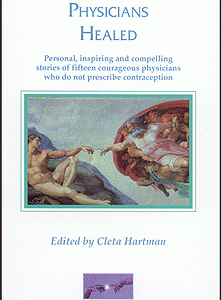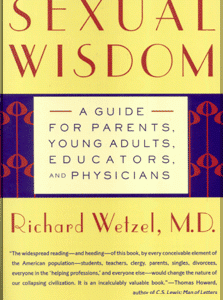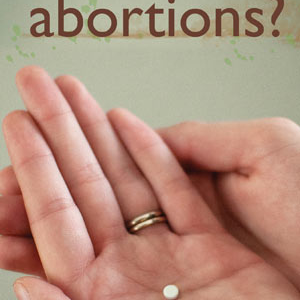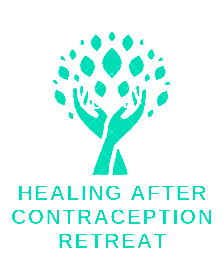Why consider alternatives to the pill?
- Hormonal contraception is associated with a wide variety of life-threatening conditions, including heart disease, stroke, blood clots, liver cancer, several reproductive cancers, and depression.
- The pill also has common negative side effects such as migraines, moodiness, and weight gain.
- Hormonal contraception modifies or eliminates the woman’s symptoms, while her underlying medical problem, the cause of the symptoms, remains undiagnosed and untreated. Masking the symptoms without appropriate diagnostic work could lead to more severe illness.
- Hormonal contraception depletes the body of important nutrients, including: Vitamin B2, Vitamin B6, Vitamin B12, Folic Acid, Vitamin C, Magnesium, and Zinc.
- Hormonal contraception can also cause temporary and sometimes permanent infertility even after use is discontinued.
- Many women want to avoid hormonal contraception for ethical reasons.
Cycle Facts
- NORMAL LENGTH : 25-31 DAYS
- SHORT CYCLE: < 24 DAYS
- LONG CYCLE: > 38 DAYS
- FOR THE FIRST 12-18 MONTHS AFTER FIRST MENSTRUATION AND AT THE END OF REPRODUCTIVE YEARS, CYCLES CAN BE VERY IRREGULAR.
- 20% OF WOMEN EXPERIENCE IRREGULAR CYCLES throughout their fertile years.
Irregular Cycles
There are several causes for irregular cycles. Some women experience irregular cycles near the beginning and the end of their reproductive life. Irregular bleeding can be caused by hormonal imbalances of the thyroid or pituitary glands, ovarian dysfunction, uterine polyps and fibroids, infections, bleeding disorders, complications in pregnancy, being underweight or having low body fat, and some medications.
WHAT DOES THE PILL DO FOR IT?
Birth control pills suppress the fertility cycle and menstrual bleeding. A woman using birth control usually takes three weeks worth of pills that contain active artificial hormones. These pills prevent pregnancy by stopping ovulation and keeping the uterine lining thin. Pills taken during the fourth week do not contain active hormones, so the woman experiences bleeding at this time. This monthly bleeding is not a “true” period. It is called withdrawal bleeding and is the body’s response to the interruption of the artificial hormones. Other types of hormonal contraception such as shots, implants, mini-pills, or intrauterine devices can cause bleeding between periods, irregular bleeding, or no periods at all.
ALTERNATIVES
The first healthy step is to identify and correct the underlying condition causing the irregular bleeding. Charting the cycles with a method of fertility awareness can help monitor the cycles and identify the cause of the irregularity. Vitamins, minerals and fatty acid supplements in combination with good nutrition, stress reduction, sufficient sleep in complete darkness, and moderate exercise are all strategies that can help improve hormonal balance and cycle regularity. For example, a woman who has extremely low body fat may need to gain five or ten pounds for her cycle to resume. A teenager involved in regular strenuous exercise, such as team sports, may want to wait until the season is over and her exercise level has decreased to see if menstruation comes back on its own.
Polycystic Ovary Syndrome
PCOS is a temporary and reversible endocrine disorder and is associated with hormonal imbalance or inflammation resulting in a lack of ovulation. Symptoms include irregular cycles, difficulty losing weight, unusual body hair on the chest, abdomen, arms, or face, insulin resistance, and infertility. Recently four different types of PCOS have been identified: insulin resistant, inflammatory, adrenal, and post-pill.
WHAT DOES THE PILL DO FOR IT?
The artificial hormones in the pill may cause more predictable bleeding and clear acne but the pill does not fix any underlying hormone problems. It makes several of them like thyroid and low progesterone worse. The pill drives up inflammation, causes oxidative stress, and creates some significant nutrient deficiencies such as zinc, B6, CoQ10, selenium, and magnesium.
ALTERNATIVES
For insulin resistance, getting enough sleep, multivitamins, flax oil, chromium, and inositol supplements may increase insulin sensitivity. Women with inflammatory PCOS and food sensitivities to dairy, soy, and eggs should eliminate these from their diet. Supplements such as zinc and NAC are helpful for
inflammation. For adrenal PCOS, stress reduction, adaptogenic herbs, and vitamin B5 may help to reduce cortisol response. For infertility, weight reduction, tracking the woman’s cycle, and treatments to stimulate ovulation are used.
Painful Periods
Painful cramps accompanying menstruation may occur in a woman who is otherwise healthy, or may be symptoms of a recognizable disease. The pain is due to inflammation and spastic contractions of the uterus caused by substances called prostaglandins. Prostaglandins decrease blood flow in the uterus and cause inflammation, which worsens the severity of uterine contractions.
WHAT DOES THE PILL DO FOR IT?
The pill decreases the thickness of the lining of the uterus, which produces prostaglandins. The thinned lining produces fewer prostaglandins, which can reduce menstrual pain.
ALTERNATIVES
When no disease is diagnosed, Non-Steroidal Anti-Inflammatory Drugs (NSAIDs) are the first-choice. Vitamin B1 (thiamine) can be an effective option. Some studies suggest that magnesium can relieve the pain related to painful periods.
Some natural alternatives are aerobic exercise, daily intake of omega-3 fatty acids, Vitamin D, Zinc, and dietary changes such as decreasing intake of animal fats.
Endometriosis
Do not ignore painful periods. It can be related to endometriosis. Endometriosis is a condition in which
the lining of the womb (the endometrium) implants and grows outside the uterus. These endometrial implants can grow in the pelvis, fallopian tubes, ovaries, bowel, bladder, or other organs such as the lung, heart, eye, armpit, or knee. It produces local inflammation, pain, and infertility.
WHAT DOES THE PILL DO FOR IT?
Hormonal contraception can alleviate some symptoms of endometriosis because it reduces the thickness of the endometrium.
ALTERNATIVES
B vitamins, vitamin C, and vitamin E may alleviate the pain. Eliminating foods containing sugar, and supplementing with essential fatty acids and vitamin D can prevent endometriosis. However, in some cases, surgery is the only way to definitively diagnose and treat endometriosis.
Heavy/Long Periods
A period is excessively heavy if a woman must change her pad/tampon more than once every hour or if her period lasts longer than seven days. Heavy blood loss can cause anemia and iron depletion.
WHAT DOES THE PILL DO FOR IT?
Hormonal contraception causes withdrawal bleeding, which can be lighter and shorter than a normal period. Withdrawal bleeding is less severe because the pill decreases the thickness of the endometrial tissue that lines the uterus.
ALTERNATIVES
Flax oil, chlorophyll capsules (rich in vitamin K), vitamin A, and beta carotene can help to reduce blood flow. For severe bleeding due to hormonal imbalance, supplemental hormones such as thyroid-replacement hormones or bioidentical progesterone may be needed.
Premenstrual Syndrome (PMS)
PMS refers to a group of symptoms that often occur at least 4 days prior to menstruation and disappear during the menstrual flow. PMS can be caused by an imbalance of the hormones estrogen and progesterone. Symptoms can include headaches/migraines, irritability, food cravings, breast tenderness, weight gain, anxiety, diarrhea, insomnia, and feelings of being overwhelmed or sad. PMS is also associated with a worsening of preexisting medical conditions including asthma, arthritis, skin disorders, gastrointestinal disorders, and psychiatric disorders such as anxiety and substance abuse.
WHAT DOES THE PILL DO FOR IT?
Oral contraceptives replace the normal fertility/menstrual cycle with a very different cycle. Some symptoms of PMS may be relieved with this treatment, but others may be worsened.
ALTERNATIVES
The first step is for a woman to chart her monthly cycles and monitor PMS symptoms she observes each month. A targeted hormone evaluation by a doctor is recommended to determine the presence of hormonal imbalances. If the evaluation confirms a hormonal deficiency, the doctor may pursue treatment with bioidentical hormones or other therapies.
Vitamin B6 has been recommended for the treatment of PMS. Magnesium may help with reduction in water retention and improvement in mood. A high intake of calcium and vitamin D may reduce symptoms of PMS. Calcium and vitamin D may also reduce the risk of osteoporosis and some cancers. Tryptophan used during the last few days before menstruation can be helpful in women with premenstrual mood disorder. Evening primrose oil and vitamin E may relieve breast tenderness.
Acne
Acne is a common localized skin inflammation influenced by hormones, principally testosterone.
WHAT DOES THE PILL DO FOR IT?
The Pill causes a decrease of free testosterone. This in turn can reduce the outbreak of acne since in some cases it is testosterone that causes the oil glands to be overactive.
ALTERNATIVES
Treatment will depend on the severity of the acne. Non-prescription topical antimicrobial and oral antibiotics are used in mild acne. Some medications such as spironolactone and isotretinoin, as well as laser and light therapy are used for severe acne. Brewer’s yeast is a rich source of chromium. Zinc supplements have also shown some improvement in acne.
No pamphlet can replace professional medical advice. This brochure presents some simple and easy health promoting strategies to help women experience better cycles and better health. If you think you might have any of these issues, we strongly urge you to discuss them with your doctor.
Want more information?
The book Fertility Cycles and Nutrition thoroughly explores the links between vitamin/mineral imbalances and unusual cycles. Check out The Effects of Light on the Menstrual Cycle for more info on the effect of too much nocturnal light. The NaPro Technology Revolution: Unleashing the Power in a Woman’s Cycle by Thomas Hilgers is a great resource for in-depth reading. It discusses a wide range of reproductive health issues and treatment plans.
These resources can be purchased at www.onemoresoul.com
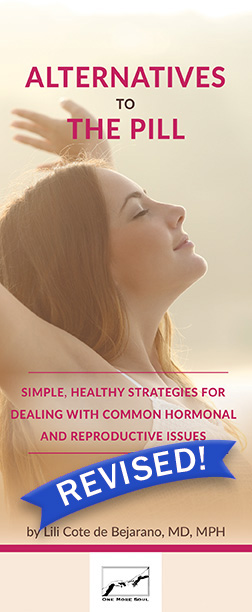
Alternatives to the Pill
Due to various problems with the Pill, many people are looking for alternatives. Here are the major uses of the Pill, how it works, and effective alternatives.
